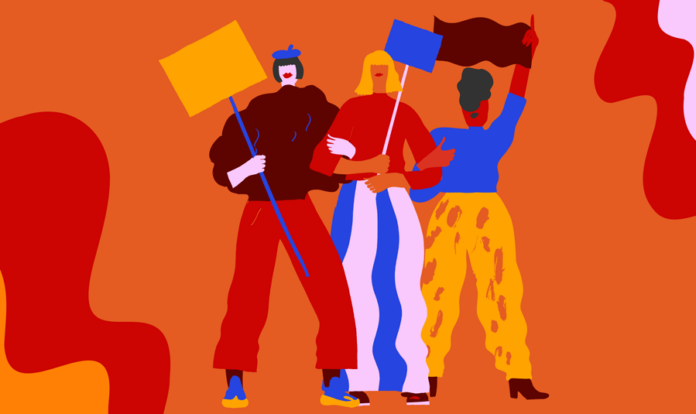The COVID-19 pandemic is having a particularly hard impact on working class women all over the world. It’s exacerbating all the inequalities that women already experience.
Women make up the large majority of workers in the “caring” professions. These professions are not paid according to the level of skill and training required, nor the risks undertaken. Historically, low pay for these jobs has been justified by sexist attitudes about these skills coming “naturally” to women. It’s supposedly “women’s work”.
In Australia, women make up between 78% and 98% of workers in these sectors: Midwives, early childhood educators, education aides, registered nurses, primary school teachers, aged and disability care workers, personal care workers and others.
While we have come some way, and there are more men entering into these professions, sexist attitudes still persist and most of these professionals lack the respect they deserve. This is despite the fact that these same workers are now on the front line of the battle against the coronavirus, and are clearly essential.
Women also make up the largest proportion of part time and casual workers, in particular in the retail and hospitality industries. Women make up 75% of checkout operators, office cashiers & wait staff. Many supermarket workers are also women, and suffer from low pay and high levels of casualisation.
Despite women making up a larger portion of the workforce than ever before, we still do the majority of housework – cooking, cleaning, household planning and so on. The burden is further increased by being the majority of stay at home parents, and/or carers for their family.
Making matters worse, home is often not a safe place at all for women. The biggest threat to most women’s lives is violence from a man, most likely someone they know. This crisis which is forcing people to stay in confined spaces for even longer is already leading to an increase in family violence.
Domestic violence services have reported an increase in calls to their hotlines in the last few months. Violence against women is a “global health problem of epidemic proportions” according to the World Health Organisation.
We know that certain things like stress and money worries can exacerbate domestic violence, and the coronavirus has created more uncertainty than most people have ever experienced in their lives.
Google searches on domestic violence are up by 75% since the first COVID-19 case was recorded. Australian doctors are warning that the increase in domestic violence can go even further, as was the case in parts of China during the country’s isolation period.
Worryingly we have also seen an increase in applications for firearms. The Victorian government has correctly put a temporary ban on the issuing of new firearms. Other states need to follow suit.
In April, the federal government pledged a measly $150 million for domestic, family and sexual violence services. Some states have added a bit more but altogether it’s nowhere near enough.
The Victorian government has announced measures to take over a few motels to be used as refuges. This is to be welcomed, but the extra funding and services need to be maintained when the pandemic is over. We also need to fight for an expansion to emergency housing and domestic violence services.
It’s outrageous that a number of conservative governments around the world are using these hard times as an opportunity to wind back abortion rights. Some governments are classifying abortions as “elective” procedures, which are being cancelled due to the inability of the health systems to meet the demand caused by the pandemic.
This should be a warning to women in Australia; a system that puts profits before all else cannot be relied upon to defend our reproductive rights. We need a system that has enough capacity to cater for all of our health needs.
Already the federal and state governments are talking about how to wind back the emergency COVID-19 measures. They want to send the bill for this crisis to working class people once the worst has passed. It will be the poor and the oppressed that will suffer the most if cuts and austerity measures are implemented as a way of paying back state debt.
But this can be resisted. We need to demand that big business and the mega-rich pay for this crisis. It was their system that allowed them to make profits from our work, and it was their inadequate system that facilitated the coronavirus outbreak in the first place.
This is why we need to couple the fight for womens’ rights, with the fight for a new socialist system that is based on equality and human need.



